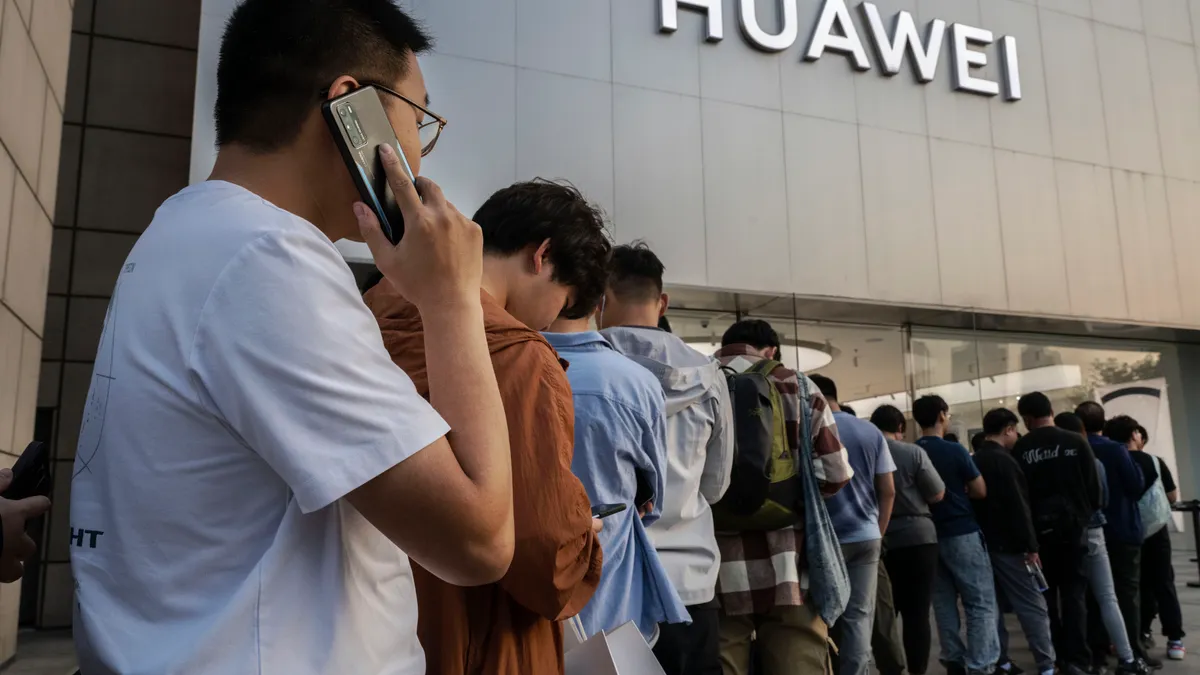Dive Brief:
- Huawei Technologies CFO Sabrina Meng will step into the role of rotating and acting chair for the telecommunications giant effective Tuesday and ending Mar. 31, 2025, according to a company announcement.
- Meng, the daughter of the Shenzhen, China-based company’s CEO and founder Ren Zhengfei, will continue to serve as Huawei’s CFO, according to the Monday press release. In her role as rotating chair, she will lead the smartphone and chip manufacturer’s board of directors and executive committee, the company said.
- This will mark Meng’s second stint as rotating chair, following a term in the role last year as the telecom company took steps to boost its revenue following U.S. sanctions which barred it from selling its telecommunications products in the U.S. As the AI boom continues, the telecom company has also moved to position itself as a rival to chipmaker Nvidia in its native China, The Wall Street Journal reported in August.
Dive Insight:
A long-time veteran of Huawei, Meng has held various roles throughout her tenure at the company, including serving as director of its international accounting department and as CFO of Huawei Hong Kong, according to a company biography. She has led the company’s “globally unified finance organizational structure, processes, regulations and IT platforms” since 2003, according to the biography.
Meng served her first term in the chairman position last year beginning that April, according to a 2023 company announcement. That term occurred as the smartphone maker faced U.S. sanctions that barred U.S.-based companies from doing business with the company, as well as blocking Huawei from selling its telecom products in the country, with lawmakers citing national security risks, the Associated Press reported at the time.
Last year, Huawei increased its focus on certain segments of its business, including on its cloud computing products, where full-year revenues jumped by 22% to reach 55.3 billion yuan or about $7.7 billion at the time, according to AP. The company reported a net profit of 87 billion yuan for the year.
Meng’s second stint as chair, meanwhile, comes as Huawei looks to position itself as the dominant AI chip provider in its native China, as demand for chips that can power generative AI technologies and models soars. Revenue from AI semiconductors is expected to reach $71 billion globally this year, a 33% jump from 2023, according to research from Gartner.
The company has been testing out new chips — its “Ascend” processors — to overcome U.S. sanctions and supplant Nvidia within China, The Wall Street Journal reported in August. Aided by state funding, the company has “become a national champion in areas including AI and a key part of Beijing’s endeavor to ‘delete’ American technologies,” the WSJ said.
Among other companies which are reportedly tapping Huawei’s chips is TikTok-owner ByteDance, which is tapping them to train a new AI model, according to a Monday report by Reuters, which cited people familiar with the matter. State-backed firm China Telecom will also reportedly rely upon Huawei chips for two large-language models it is developing, according to a recent report by Fast Company.
Huawei did not immediately respond to requests for comment.












